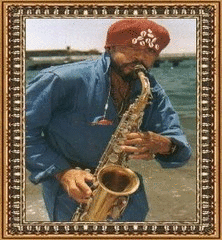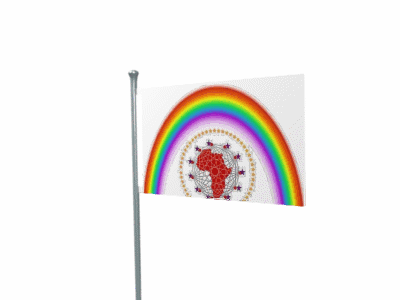
ANOTHER CASE BROUGHT ON
COSMIC GROUNDS



Describe your image here

...point them out ...one by one....
Dulcie Evonne September, plus connue sous le nom de Dulcie September, était une personnalité politique sud-africaine et une militante anti-apartheid, née le 20 août 1935 à Athlone (en) dans la banlieue du Cap, assassinée le29 mars 1988 à Paris
Après des études à l'école normale de Salt River (banlieue industrielle du Cap) puis dans celle de Wynberg elle enseigne à Maitland dans une école de mission, puis à l'école primaire de Bridgetown jusqu'à son arrestation le 7 octobre 1963, pour son activisme anti-apartheid. Jugée, elle est condamnée à 5 ans de prison. Elle continue ses études supérieures en prison. Elle est libérée en 1969, mais assignée à résidence pour 5 ans, ce qui lui interdit la reprise de son métier d'enseignante. En 1970, elle travaille comme réceptionniste chez un dentiste. Elle se résout à l'exil et quitte son pays en décembre 1973 avec un visa de sortie permanent : statut qui l'empêche de revenir dans son pays définitivement. En Angleterre, elle suit une formation d'enseignante à Madeley college. Parallèlement, elle continue son activité militante. Elle travaille pour la ligue des femmes de l'ANC. En 1979, elle est élue présidente du comité londonien pour l'année internationale de l'enfance des Nations unies. Devenue militante à plein temps, elle part pour Lusaka en Zambie en 1981. Elle fait alors de nombreux voyages à l'étranger. Suite à l'élection de François Mitterrand en 1981, l'ANC n'est plus considéré comme une organisation terroriste par la France et peut ouvrir un bureau à Paris. Elle en prend la direction au début de 1984. Agressée dans le métro en automne 1987, la police ne prend pas l'affaire au sérieux. Elle demande une protection policière, ce qui lui est refusé. Craignant pour sa sécurité, elle déménage et va habiter à Arcueil, rue de la convention. Le 29 mars 1988, elle est assassinée devant la porte de son bureau au 4° étage, 28 rue des Petites Écuries dans le 10e arrondissement de Paris. Son assassin, qui l'attendait à l'étage supérieur, lui loge 5 balles dans la tête avec un calibre 22 équipé d'un silencieux. On ne connaît toujours pas l'assassin, mais les suspects sont Joseph Klue (Sergent Major du SADF), Dirk K. Stoffberg (vendeur d'armes et agent SA), Heine Hüman ainsi que Jean-Paul Guerrier, proche du mercenaire Bob Denard.
Il a été suggéré que cet assassin a été engagé par le gouvernement sud-africain, notamment, le service action des services secrets, le Civil Cooperation Bureau. L'association Survie notamment accuse les services secrets français d'avoir collaboré à cet assassinat. Avant son assassinat, Dulcie enquêtait sur un trafic d'armes entre la France et l'Afrique du Sud
DULCIE SEPTEMBER
Dulcie Evonne September
(20 August 1935 – 29 March 1988) was a South African anti-apartheid political activist. Born in Athlone, Western Cape, South Africa, she was assassinated in Paris, France.
The second eldest daughter of Jakobus and Susan September, Dulcie grew up in Gleemore, a suburb in Cape Town, where she developed her interest in political activism. She began her primary schooling at Klipfontein Methodist Mission, and later attended Athlone High School. In 1954, she enrolled at the Wesley Training School in Salt River to pursue a career in teaching, and completed her Teacher's Diploma in 1955. She began her teaching career, first at City Mission School in Maitland, then at Bridgetown East Primary School in Athlone in 1956, and in 1957 became a member of the newly established Cape Peninsula Students' Union (CPSU), affiliate of the Unity Movement of South Africa, which aimed at overcoming racial divisions and forging solidarity among students of different cultural backgrounds. She belonged to the Athlone branch of the Teacher's League of South Africa (TLSA).
September subsequently joined the African Peoples Democratic Union of Southern Africa (APDUSA), established in 1960. She went on to be a member of the militant study group Yu Chi Chan Club, which was disbanded at the end of 1962, to be replaced by the National Liberation Front (NLF) in January 1963. While engaged in NLF activities, she was arrested and detained without trial at Roeland Street Prison on 7 October 1963. Together with nine others she was charged under the Criminal Procedure Act, the principal charge being "conspiracy to commit acts of sabotage, and incite acts of politically motivated violence". After months of court proceedings, judgment was delivered on 15 April 1964. September was sentenced to five years imprisonment, during which time she endured severe physical and psychological abuse. On her release in April 1969, the Pretoria regime controlled her activities with a five-year banning order, which prohibited her from engaging in political activity and from practising her profession. September then went to live with her sister in Paarl
In 1973, as her banning order drew to a close, September applied for a permanent departure permit, having secured a position at Madeley College of Education in Staffordshire. She left South Africa on 19 December 1973. In London, she joined the activities of the Anti-Apartheid Movement and was in the frontline of numerous political rallies and demonstrations at South Africa House in Trafalgar Square. Later she gave up her job as a teacher and joined the staff of the International Defence and Aid Fund for Southern Africa. In 1976 she joined the African National Congress (ANC) where she worked in the ANC Women's League. In 1979, International Year of the Child (IYC), she was elected chairperson of the IYC Committee of the ANC Women's Section in London. At the end of 1983, September was appointed ANC Chief Representative in France, Switzerland and Luxembourg.
On the morning of 29 March 1988, September was assassinated outside the ANC's Paris office at 28, Rue des Petites-Ecuries, as she was opening the office after collecting the mail. She was shot five times from behind with a 22-calibre silenced rifle.[1] She was 52 years old.
Before her assassination, September had been investigating trafficking of weapons between France and South Africa




























